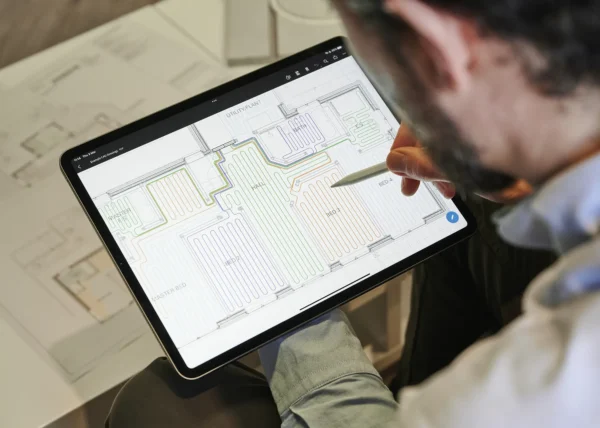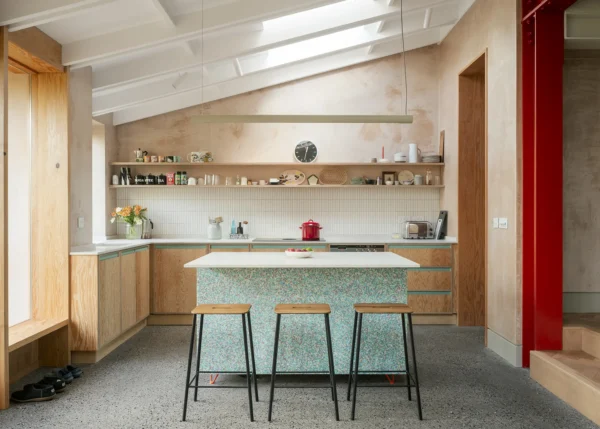Common Project Management Mistakes & How to Avoid Them – an Expert’s Guide
Presiding over a self build project is hard work and with so many moving parts, there’s a lot that could go wrong. The key to success is effective project management. Provided you can avoid the following common mistakes, there’s no reason why most self builders can’t do it well.
Avoid Poor Leadership When Project Managing
Building a house takes a whole team of people, with different skills, competencies and priorities. Managing the building process is a bit like herding cats and the project manager (PM) has to be an effective leader to ensure everyone plays their part.
As a self managing self builder, it’s understandable that you may lack confidence in your ability to lead a project – especially if you’ve never done it before. In these circumstances, priorities get confused and decision making becomes compromised. Losing effective control of your project risks delays to your schedule and extra costs.
While this sounds quite serious, it doesn’t mean that you can’t manage your own project. Provided you understand the role and responsibilities of running things yourself and work with the trades and professionals to understand what’s needed, you can be an effective leader. Be prepared to listen, question what’s going on and act when things aren’t quite going to plan or when key decisions need to be made.
Lack of Communication Will Cause Problems
Effective communication is vital for the success of any project and self builds are no exception. We all have different standards and methods of conveying information – each with varying degrees of success.

Homeowners Simon and Frances Edwards shared the project management duties during their self build. Frances was responsible for keeping a close eye on costs, and kept a meticulous account of the couple’s £400,000 budget. Photo: Katy Donaldson
The obvious answer is to be clear and unambiguous when communicating. On building projects, there’s no room for uncertainty and if you’re a flowery communicator, keep this in check. It’s essential that you understand the responsibility for conveying information lies with the PM, so be prepared to flex your approach to suit the various individuals you interact with. This basically means there’s no point sending the bricky an email when WhatsApp is more likely to get through.
Hands-on or Hands-off?Should you get really involved in managing your build or stand back and let the experts deliver? Understand the options and which is right for you at Build It Live. Different exhibitors specialise in the various routes – from complete turn-key builds to hands-on support to maximise your chances of success. Explore all the options in one place – only at Build It Live. Build It Live takes place three times a year in Oxfordshire, Exeter and Kent. The next show will be on 7th and 8th June 2025 in Bicester, Oxfordshire. Claim a pair of free tickets today and start planning your visit. |
Being Indecisive Can Lead to Complications
Building a house involves thousands of decisions, from choosing materials to signing off designs and paying the bills. You’ll have to make choices day in and day out. Indecisive self builders will quickly run into problems.
PMs must be able to consider the facts, analyse priorities, balance budgets and meet quality standards efficiently – while keeping the team motivated and moving in the right direction. Sounds like a tall order, but provided you recognise the need for a decision and approach it in a timely and logical manner, canvasing opinion from the experts, most people will be much more effective than they realise.

Darren Findlow and Anthony Higham ensured their site was an enjoyable place to be and made the effort to be there in-person virtually every day, ready to answer questions and ensure everything was running smoothly. Photo: Colin Poole
Having a Messy Site Should be Avoided
Making a living as a contractor or tradesperson is hard work and comes with plenty of risks that get in the way of earning a wage. As they say, time is money and for anyone working on a building project, the main goal is to finish the job to a high-quality standard as efficiently as possible.
Unfortunately, it’s easy to forget this as a PM with lots to juggle and you can end up failing to give the contractors every chance of being successful.
A poorly organised site is likely to discourage your trades from getting the job done. The solution is simple – be organised and keep a tidy environment ready for anyone that’s coming to work there. Be mindful that they need to make their money and help them be productive. By setting your stall out well and helping the contractors, in turn they’ll be responsive, obliging and more likely to turn upon time.
EXPERT Top tipsEffective project managers…
|
Keep on Track of the Different Works
Building sites are fast-paced places with lots going on all at once. The project manager has to deal with a multitude of questions and keep an eye on what’s coming next in order to keep the build and everyone involved on schedule. With so much going on, an impressive sense of recall is needed to keep things moving.

Build It readers Steve and Suzanne Richardson self built their brand-new home using a timber frame package from Frame Technologies. The couple, who project managed the build themselves, advise that anyone in a similar position should “plan ahead when it comes to obtaining materials and get them on site as early as possible. We were pretty good at making sure they were available before we needed them.” Photo: Matthew Smith
For most of us, having a great memory isn’t a choice so it’s a good idea to develop the habit of writing things down or recording them in a way that makes sense to you from the outset. Use good old-fashioned tools like a site diary and checklists so nothing gets missed.
Don’t Be Afraid to Ask for Help
Just because the project manager is in charge, doesn’t mean that they’re the font of all knowledge and the leading expert in all construction matters (nor is this a requirement of the job, by any means). Even the most experienced individuals will have gaps in their knowledge and will need to consult other professionals at various points across both the design and planning stages, as well as throughout the construction and fit-out.
Inexperienced project managers often have insecurities that a lack of know-how will somehow undermine their authority. In these circumstances, the risk of assumption is heightened and with it things go wrong. Don’t be afraid to ask questions and always give others the opportunity to demonstrate their brilliance.

Victoria Johnson used local labour and natural, sustainable materials to turn this classic barn into an idyllic Cornish home. She lived on site during the project and found herself acting as a project manager when she hadn’t done anything similar in the past. “I didn’t even realise that’s what I was doing,” she says. “I enjoyed the process, but I wouldn’t do it again.” Photo: Simon Burt
Avoid Being too Confrontational
Building a house is a challenge and whether we like it or not, things will go wrong occasionally. More often this will be down to circumstances out of your control, or that of your contractors. Speaking from experience, there’s no point in hurling stones at each other.
The best approach is to have a bit of empathy and when you’re approached with a genuine problem, do your very best to help out. This will mean being flexible but not to a degree that there will be long lasting implications for your build. Mostly, the problems will be time related and in the grand scheme of things, a few days here and there won’t matter in the end.
So, be firm but fair and if problems are brewing, put the kettle on and talk through the issue calmly to find the best solution for all parties. If the problem’s a big one, handing out some cake never hurts.
































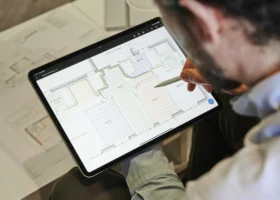









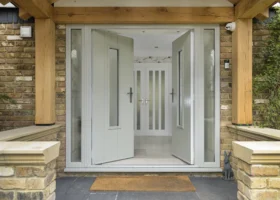




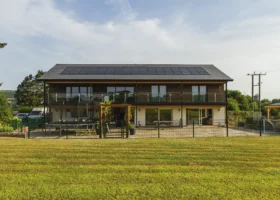










































 Login/register to save Article for later
Login/register to save Article for later



